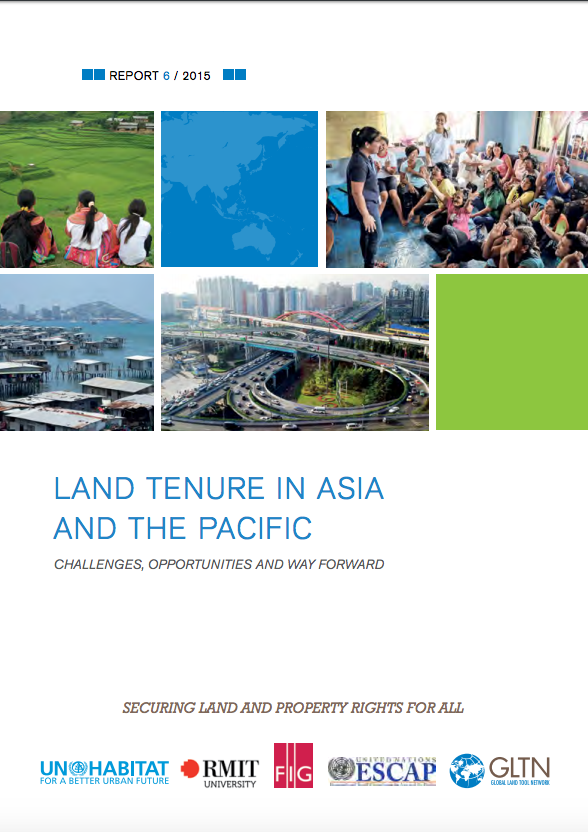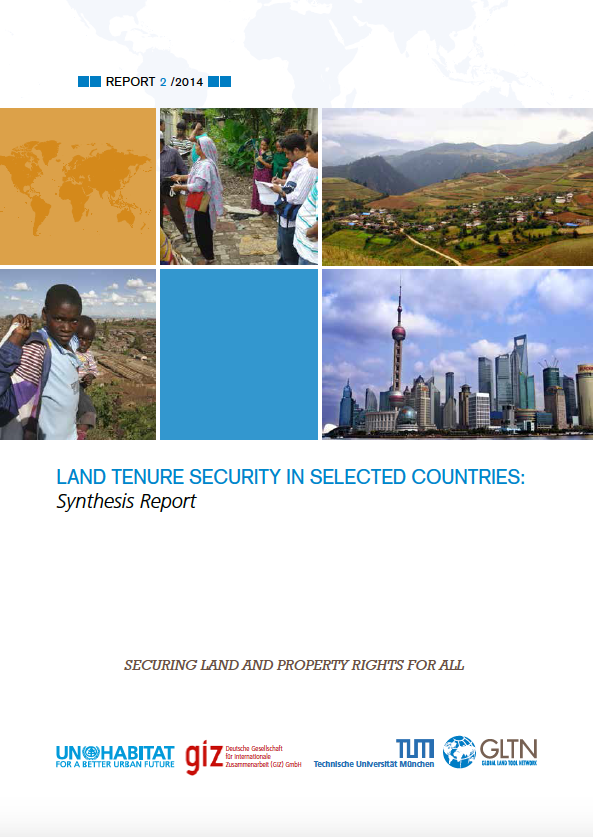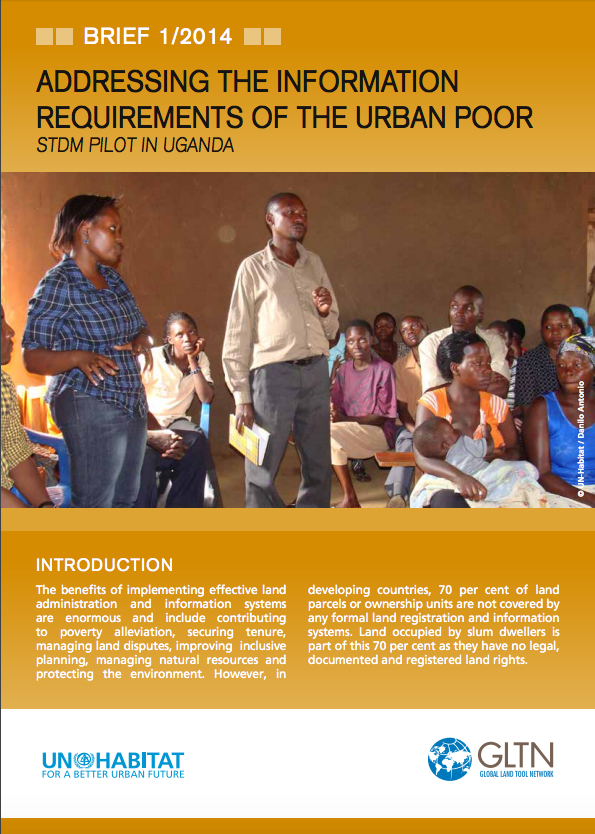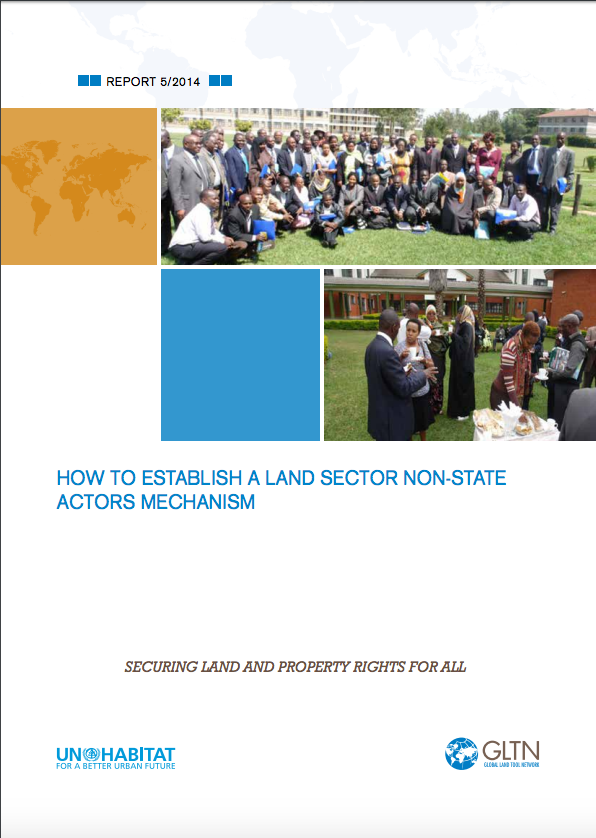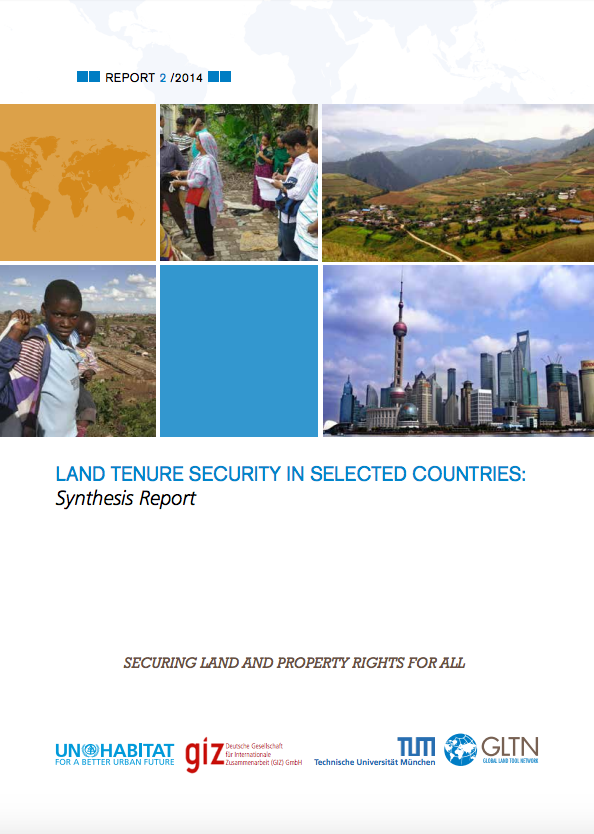Focal point
Location
The Global Land Tool Network (GLTN) is an alliance of global regional and national partners contributing to poverty alleviation through land reform, improved land management and security of tenure particularly through the development and dissemination of pro-poor and gender-sensitive land tools.
Secure land tenure and property rights are fundamental to shelter and livelihoods as well as the realisation of human rights, poverty reduction,economic prosperity and sustainable development.
The Global Land Tool Network (GLTN) main objective therefore is to contribute to poverty alleviation and the Millennium Development Goals through land reform, improved land management and security of tenure.
UN-Habitat through GLTN continues to work towards this with partners who include international civil society organizations, international finance institutions, international research and training institutions, donors and professional bodies.
Most developing countries use conventional land administration systems which cover less than 30 per cent of the country, leaving up to 70 per cent of citizens looking to informal and/ or customary approaches for their tenure security.
While there are many examples of good land policies, there are few policies that have been fully implemented due to lack of pro-poor, gendersensitive and largescale land tools. Further, conventional land titling approaches have largely failed to deliver their expected results since existing technical solutions are too expensive, inappropriate for the range of tenure found in developing countries, unsustainable financially or in terms of available capacity, and instead a range of land tenure options is more appropriate.
Core Values
Consequently, GLTN's core values and principles are founded in the development of land tools that are:
- Pro poor;
- Equitable;
- Sustainable;
- Affordable;
- Systematically large scale /scalable; and,
- Gender-sensitive, while taking into consideration:
- Good governance;
- Subsidiarity; and,
- The Continuum of Land Rights.
GLTN Objectives and Mandate
GLTN has developed a global partnership on land issues pulling together global partners, as well as many individual members. These partners include international networks of civil society, International Finance Institutions, international research and training institutions, donors and professional bodies. It continues to take a more holistic approach to land issues by working towards the following objectives:
- The establishment of a continuum of land rights, rather than just focus on individual land titling
- Improving and developing pro-poor land management, as well as land tenure tools
- Unblocking existing initiatives Assisting in strengthening existing land networks
- Supporting in the development of gendered land tools which are affordable and useful to grassroots
- Improving the general dissemination of knowledge about how to improve security of tenure
- Improving the general knowledge dissemination on the improvement of security of tenure
Resources
Displaying 211 - 215 of 286Land Tenure in Asia and The Pacific: Challenges,Opportunities and Way Forward
This publication provides an overview of the findings of a review of land tenure security in Asia and the Pacific region in collaboration with key partners. It highlights the major land challenges, barriers and opportunities as the basis for future decisions about partnerships and engagement in the land sector at sub-regional and country level. The findings are based on an extensive literature review, interviews, a questionnaire, validation at several multi-stakeholder meetings and peer review.
Land tenure Security in selected countries: Synthesis Report
It is well recognized that secure land and property rights for all are essential to reducing poverty because they underpin economic development and social inclusion. Secure land tenure and property rights enable people in urban and rural areas to invest in improved homes and livelihoods. Although many countries have completely restructured their legal and regulatory framework related to land and they have tried to harmonize modern statutory law with customary ones, millions of people around the world still have insecure land tenure and property rights.
Addressing the Information Requirements of the Urban Poor - STDM Pilot in Uganda
The Social Tenure Domain Model offers practical solutions and opportunities for land professionals, researchers, grassroots organisations and government authorities. These opportunities include the empowerment of the grassroots communities to develop and manage their own information systems (and their own data), with all the benefits of the advanced technologies can offer, with less investment in resources and with less reliance on highly paid experts. Land professionals can also make their services available to all and offer people-centred and affordable solutions.
How to Establish a Land Sector Non-State Actors Mechanism
This guide outlines the factors that influence the set up and effective operation of a non-state actor mechanism in the land sector, particularly during a land reform process. A land sector non-state actor mechanism is a means by which a group of non-state actors (civil society, grassroots organisations, etc.) coordinates their interventions and support to enhance their impact in the land sector, particularly during land reform processes.
Land Tenure Security in Selected Countries - Synthesis Report
In this synthesis report, the issue of tenure security is addressed and assessed in several countries where government, civil society, the private sector and development cooperation initiatives have been implemented for decades.





